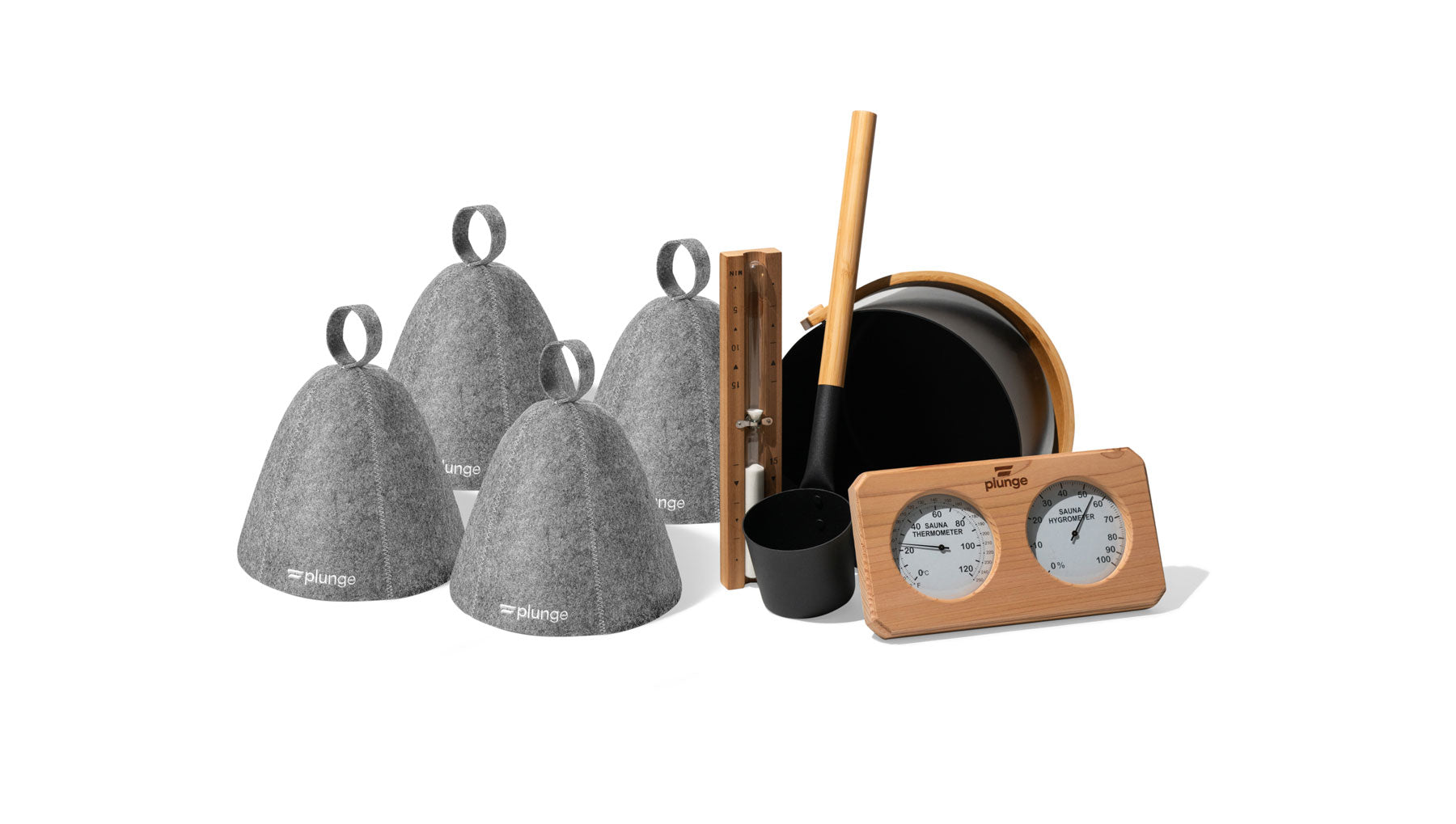
7 Science-Backed Benefits of the Sauna After Workout Sessions
If you're an athlete or fitness enthusiast, you know that recovery is just as important as training. After a workout, your muscles need time to recover and repair themselves, especially if you're training multiple times per week. While rest and nutrition are crucial for this process, there's another tool gaining wide popularity among athletes: saunas.
Saunas have been used for centuries for their health benefits, and recent scientific studies have shown that the benefits of a sauna after a workout can be particularly effective for recovery. In this article, we'll explore the benefits of sauna after workout sessions, and provide some simple tips for incorporating sauna into your post-workout routine.
Understanding Different Sauna Types
Saunas are small, enclosed spaces or rooms designed for heat therapy, relaxation, and bathing. They are typically heated to high temperatures, which can range from 150°F to 195°F (65°C to 90°C) or even higher, depending on the type of sauna. There are various different types of saunas, each with its own unique characteristics and methods of generating heat. Here are three of the most common ones:
- Electric and dry saunas, such as traditional Finnish saunas, rely on heating the air in the room, but they have lower humidity levels.
- Infrared saunas use infrared heaters to emit radiant heat that directly heats the body rather than the air in the room.
- Steam rooms are quite different as they combine high humidity and warm air to create a relaxing and soothing environment.
7 Benefits of Sauna After Workout
Saunas offer a wealth of benefits for post-workout recovery. After an intense exercise session, the body often accumulates tension and fatigue in muscles. Electric and traditional saunas use dry, radiant heat to help alleviate this muscle tension and promote relaxation, fostering a faster recovery process. Here are seven, science-backed benefits of using a sauna post-workout.
1. Using Sauna for Better Muscle Recovery and Growth
Muscle recovery and growth occur when the muscles are given time to repair themselves after a workout. Without ample recovery, growth can't happen. Sauna helps move this process along by increasing blood flow to the muscles. During a sauna session, your body's temperature increases, which causes blood vessels to dilate and increase blood flow. This increased blood flow delivers oxygen and nutrients to the muscles, which are known to improve recovery and growth.
Sauna use also assists muscle recovery by triggering the release of growth hormone. Also referred to as HGH, this hormone is widely known to promote muscle growth and repair. Studies have shown that regular sauna use can increase growth hormone levels in the body.
2. Increase Strength with Sauna After Weight Lifting
One study published in the Journal of Athletic Training found that regular sauna use improved muscle strength and power in male athletes. Another study conducted at Northern Michigan University found that post-workout sauna use increased muscle hypertrophy in male weightlifters.
Most associated with strength training, resistance exercise, and bodybuilding, muscle hypertrophy is the process by which skeletal muscle fibers increase in size and cross-sectional area. These findings suggest that sauna use can be an effective tool for enhancing muscle recovery to increase strength that likely extends to both men and women.
3. Reduce Inflammation with a Post-Workout Sauna
Another benefit of sauna after workout sessions is reducing inflammation. Inflammation is a natural response to muscle damage and while typically not something to be perceived as negative, chronic inflammation can impede the recovery process and is unhealthy. Sauna use has been shown to reduce inflammation in the body, which can aid in post-workout recovery, and is good for general health.
A study published in the International Journal of Sports Medicine found that post-workout saunas also reduce muscle soreness and inflammation in male endurance athletes. Another study published in the Journal of Athletic Training found that regular saunas use reduced oxidative stress in male athletes. Oxidative stress results from an imbalance of harmful reactive oxygen species (ROS), which in turn, can trigger and increase inflammation. So it's safe to bet that sauna use is effective for reducing inflammation and aiding in post-workout recovery.
4. Enhance Endurance with Sauna After Cardio
Saunas post-workout also aid in the development of heat acclimation, which can enhance endurance in hot environments. A study published in the Journal of Science and Medicine in Sport found that regular sauna use improved endurance performance in male distance runners. Once again, science proves that sauna use can be an effective post-workout tool!
5. Improve Cardiovascular Function with Sauna Post-Workout
Improving cardiovascular function and reducing blood pressure can be beneficial for overall fitness and heart health as it boosts the heart and blood vessels' efficiency to dilate while lowering the force of blood against arterial walls. Multiple studies have found that regular sauna use improved cardiovascular function in both men and women athletes. This typically means strengthening the heart muscle, optimizing its ability to pump blood, and ensuring that blood vessels are flexible and free from blockages.
6. Boost Circulation with a Sauna After Your Workout
In addition to reducing inflammation, sauna use can also boost circulation in the body. Improved circulation assists the delivery of oxygen and nutrients to the muscles, which aids recovery and growth. Improved circulation also assists in the detoxification and removal of waste products from the muscles, which helps with soreness. And who doesn't need a little help with that?
7. Build Flexibility with a Sauna After Exercising
Flexibility plays a crucial role in both optimizing athletic performance and reducing the risk of injuries. Recent research has found that regular sauna use can significantly increase flexibility and strength. This enhancement in flexibility offers an array of advantages for athletes, including:
- Extended range of motion
- Improved joint mobility
- Decreased stiffness
- Increased joint relaxation
Such post-workout improvements are not only beneficial for athletes aiming to reach their peak performance levels but also for individuals seeking to prevent injury and maintain overall joint health.
Tips for Better Post-Workout Sauna Sessions
After an intense exercise session, your muscles may be tense and fatigued. Sauna use can help alleviate muscle tension and promote relaxation, aiding in post-workout recovery. However, it's important to approach sauna use with care and consideration for your well-being. To help you make the most of your post-workout sauna sessions, we've compiled a list of essential tips:
Which is Better: Sauna Before or After Workout?
This is a popular question that many athletes wonder about, but the answer is simple. It’s best to use the sauna after a workout, rather than before. While sauna use before a workout can increase blood flow and aid in warm-up, it can also lead to dehydration and reduced performance.
Start with Short Sessions
If you’re wondering how long to sit in a sauna after workouts, it’s important to start by gradually increasing your sauna time and temperature. If you're new to sauna use, start with shorter sessions, around 10-15 minutes, at a lower temperature and gradually increase your time and temperature. This allows your body to acclimate to the sauna and reduce the risk of overheating.
Stay Hydrated Before, During, and After
One of the most important tips is to hydrate before, during, and after sauna use. Sauna use obviously causes sweating, which can lead to dehydration. No worries though—just drink plenty of water before, during, and after sauna use to ensure proper hydration, and you'll be fine.
Cool Off Gradually
After leaving the sauna post-workout, allow your body to cool down. You can do this gradually by taking a cool shower, using a cool towel, or simply resting in a cool, quiet area. However, immediately rushing from the sauna to cold water or ice can put stress on your body if not acclimated. A sauna followed by a gentle cool down (and then cold therapy if desired) is a relaxing approach. Head here to learn more about combining sauna and ice therapy.
Precautions for Post-Workout Sauna Sessions
Using a sauna after your workout can be a rewarding way to unwind and enhance your recovery process. But when incorporating a sauna into your post-workout routine, it's essential to take these precautions to ensure your well-being:
- Listen to Your Body: If you feel lightheaded or dizzy during sauna use, get out immediately and cool off. Avoid alcohol and other substances that can impair your judgment and increase the risk of overheating.
- Know Your Medical History: If you have underlying medical conditions or are taking medications, consult with a healthcare professional before using a sauna after a workout. Some health conditions may be exacerbated by sauna use.
- Cool Down First: Allow your body to cool down naturally after your workout and before entering the sauna. Rapidly going from intense physical activity to a sauna can stress your body and negate any of the benefits of post-workout sauna.
- Understand Gym Sauna Etiquette: If using sauna in a public gym setting, be mindful of proper sauna etiquette, such as showering before entering, sitting, or lying on a towel, and avoiding loud or disruptive behavior. This helps create a more comfortable environment for everyone using the sauna. However, if you’re taking advantage of the privacy of an at-home sauna, you won’t have to worry about maintaining proper etiquette.
Final Thoughts on Post-Workout Sauna Sessions
Sauna use can be an effective tool for post-workout recovery, muscle growth, and endurance enhancement. By increasing blood flow, reducing inflammation, and improving circulation, sauna use can aid in post-workout recovery and reduce muscle soreness. Regular sauna use can also enhance endurance by improving cardiovascular function and aiding in heat acclimation.
To incorporate a sauna into your post-workout routine, it's important to follow best practices and tips, such as proper hydration, gradual increases in time and temperature, and listening to your body. With proper use, the sauna can be a valuable tool for any athlete or fitness enthusiast looking to enhance their recovery and performance.
Experience the advantages and benefits of a post-workout sauna at-home with our new cedar at-home sauna!























